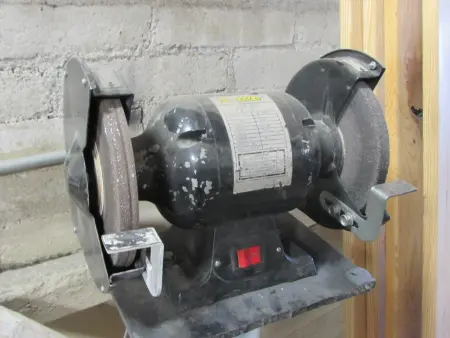
Machine Guarding Accidents
OSHA fined a company in Mobile, AL nearly $90,000 after a 22-year-old employee was killed on the job. The young apprentice was caught in the unguarded drive shaft of a crane trolley. The most unfortunate part of this tragic accident is that it was completely avoidable. Had the hazardous area been correctly guarded, the employee would never have been caught in the machinery.
Following an investigation, OSHA cited eleven serious safety violations. These included allowing employees to work near unguarded machinery, failing to consistently inspect cranes, and failing to train employees on fall protection. Ultimately, OSHA decided that the company had not created a safe environment for its workers as they were frequently exposed to struck-by and crushed-by hazards.
Machine guarding may seem like a small or trivial thing, but its job is to protect employees from injury on the job. Unguarded machines make it possible for amputations if body parts are accidentally caught in the blades or augers of machinery. There have also been many cases of employees’ clothing getting caught in the rotors, pulling them into the blades. These horrible accidents can be easily prevented as long as there is guarding on the machinery.
While machine guarding can easily prevent accidents, it is difficult to rescue an employee that is already caught in machinery. Never assume that accidents won’t happen, or that you would be able to stop a situation before it gets deadly. In many cases, an employee caught in machinery was already injured or dead before others had realized something had happened. With heavy machinery and power tools, you can never be too careful.
Machine Guarding- Is it Important?
In the construction industry, there are several precautions and safety standards that employers and employees are required to be aware of and follow. But are all of them important? What is the harm in one little safety violation? Surely it can’t be the end of the world, can it?
Well, maybe not the end of the world. But quite possibly the end of a life.
There have been multiple citations lately for the lack of a very important safety standard: machine guarding. Machine guarding may often be overlooked, or deemed as unimportant, but it may be the answer to many problems that companies face. At the Fuyao Glass America plant, OSHA found two “serious” safety issues, and have fined the company $14,000. The citations involved a lack of machine guarding. This refers to the guarding that prevents a machine from catching or touching an employee’s hands and fingers, at the least. Machine guarding can also prevent employees from getting caught in machines, or other, more serious incidents. Although no one had yet been injured at the Fuyao Glass America plant, in Ohio last year, there was a reported 266 amputation injuries.
Another company, the GE Circleville Lamp Plant, faces $88,000 in fines, after being cited for two repeated and three “serious” violations. The company was cited for failing to ensure adequate machine guarding on conveyor belts and other operating machinery, as well as the use of lockout/tagout procedures. Linda Harrington, acting area director of OSHA in Columbus, said, “GE must implement proper machine safety procedures to avoid a tragic and preventable incident. Failure to implement these procedures is among the most frequently cited OSHA violations.”
Lack of machine guarding may seem like a harmless standard to disregard. However, with proper machine guarding and proper training, this safety standard may be the answer to preventing death and injury in many instances.
Machine Guarding: Not a Suggestion
Unguarded or inadequately guarded machines are all too common in the workplace. They present hazards to workers such as amputation, crushing, abrasions, and lacerations. Many workers and injured in these ways due to reaching into machines, neglecting lockout/tagout, or because the guards themselves are loose, have been tampered with, or are missing altogether. Machine guarding is a simple way to keep yourself or your employees safe.
A company in Pennsylvania learned the importance of machine guarding the hard way. Though they are facing OSHA fines, it is their employee who ultimately pays the price for his employer’s negligence:
An administrative law judge of the U.S. Occupational Safety and Health Review Commission upheld citations against a Pennsylvania manufacturer after a worker’s three fingers were amputated when a machine without safety guards crushed his hand.
A U.S. Occupational Safety and Health Administration inspection at Montgomeryville, Pennsylvania-based Lloyd Industries Inc.’s facility resulted in the issuance of several citations alleging willful, serious and other-than-serious violations of the Occupational Safety and Health Act, according to commission documents. Lloyd Industries manufacturers access doors, fire and smoke dampers, and HVAC products.
Proper machine guarding can be the difference between returning a worker to his family just as he came to work that day, or life-altering injury or even death. As in the case cited above, these injuries can result in permanent disability for a worker, and hefty fines for an employer.
For more on this story, click here.
For more information on how to properly guard dangerous machinery, click here.
Be properly trained with one of our available training resources:
